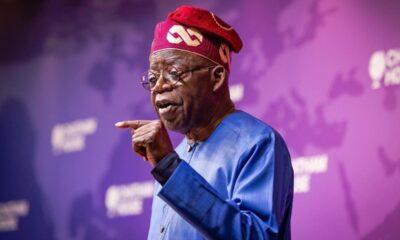- NECA, CIBN, MAN, Others Back Sanusi’s Call for Fuel Subsidy Removal
Against the backdrop of the statement by the Emir of Kano, Mallam Muhammad Sanusi II, that the country was on the brink of bankruptcy, the Nigeria Employers’ Consultative Association and other stakeholders have asked the Federal Government to scrap fuel subsidy.
Sanusi, a former governor of the Central Bank of Nigeria, said on Tuesday that fuel and electricity subsidies as well as debt servicing had continued to eat into government revenue and urged President Muhammadu Buhari to stop the subsidy regime, which he described as fraudulent.
NECA, in its reaction to the Emir’s statement on Wednesday, described fuel subsidy as a conduit for corruption.
The Director-General, NECA, Mr Timothy Olawale, in a telephone interview with one of our correspondents, noted that the association had made its position known on the issue, arguing that the Federal Government should allow market forces to determine the fuel price.
“The fuel subsidy should be scrapped. This has always been the position of NECA. As far as we are concerned, fuel subsidy is a conduit for corruption. It is a means of enriching certain individuals. Such money going into fuel subsidy should be channelled into a productive sector of the economy and not consumption,” he said.
On the issue of debt servicing, the NECA boss described the situation where the FG was spending over 30 per cent of the budget on debt servicing as unsustainable.
“There will be little or nothing left for infrastructure, after recurrent expenditure must have been removed also. It portends a bleak future for the nation, and a burden for the generation yet unborn; it is like going into slavery. It is not sustainable,” Olawale added.
The President, Chartered Institute of Bankers of Nigeria, Dr Uche Olowu, also described fuel subsidy as unsustainable.
“But they (government) must find a way of how they can cushion the effect when they remove the subsidy. There will be pain in the short term. But in the long term, they will use the money from that subsidy to upgrade infrastructure that will encourage wealth creation activities, which will increase employment,” he said.
The Corporate Affairs Director, Manufacturers Association of Nigeria, Mr Ambrose Oruche, said the Organised Private Sector, which MAN belongs to, had taken a position on fuel subsidy in 2014, supporting the removal of fuel subsidy and saying that the money should be invested in infrastructure.
He told one of our correspondents that the body had yet to take a new official position on the current argument about subsidy removal and debt servicing.
The Centre for Social Justice said the continued retention of the fuel subsidy scheme would worsen the funding crisis currently facing the country.
The Lead Director, CSJ, Mr Eze Onyekpere, told one of our correspondents that the country’s revenue profile was not looking better.
“Continuing subsidies on petrol will compound our funding crisis. So, I support the Emir of Kano that the fuel subsidy should be removed because it is in line with what we have been talking about,” he said.
Onyekpere said there might be a critical challenge in the realisation of the revenue and funding needed to implement the 2019 budget.
This, according to him, is against the background of the revelation by the immediate past Minister of Finance, Mrs Zainab Ahmed, that only 55 per cent of the 2018 revenue projections were realised.
He said the revenue underperformance followed the trajectory in previous years where the Federal Government consistently failed to realise budgeted revenue.
Onyekpere said, “We are worried that despite the price of crude oil selling above the benchmark price in the last couple of years, we have hardly met the production target of 2.3 million barrels a day. The recent disclosure that the country produces less than two million barrels a day falls in line with the trajectory of this challenge.
“The dominance of oil in the revenue profile, as well as the relatively meagre revenue expected from the non-oil sector, compounds the revenue challenge. Increasing recurrent expenditure accruing from the increased public minimum wage will imply that we have to partly fund salaries with borrowed money which is not sustainable either in the short, medium or long term.”
He said proceeds from the solid minerals sector were still very low, despite overwhelming evidence of massive illegal mining, adding that revenue leakages from operating surpluses of agencies of government as well as non-remittance had yet to be fully addressed.
A professor of Economics at the Olabisi Onabanjo University, Ago Iwoye, Ogun State, Sheriffdeen Tella, said although the amount expended on fuel subsidy and debt servicing was huge, the country could not go bankrupt.
But he argued that development in some sectors would continue to suffer, saying debt servicing was becoming a big problem that the government must be concerned.

 Naira4 weeks ago
Naira4 weeks ago
 News4 weeks ago
News4 weeks ago
 Naira4 weeks ago
Naira4 weeks ago
 Travel3 weeks ago
Travel3 weeks ago
 Jobs4 weeks ago
Jobs4 weeks ago
 Naira3 weeks ago
Naira3 weeks ago
 Naira3 weeks ago
Naira3 weeks ago
 Investment4 weeks ago
Investment4 weeks ago
























